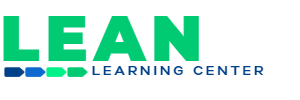Key Takeaways
- Understanding Lean methodology’s principles of value-adding activities, waste elimination, and continuous improvement in the context of healthcare.
- Exploring how Lean methodology can enhance operational efficiency and patient outcomes, aiding healthcare administrators in adapting to evolving healthcare policies.
- Highlighting the role of active management and measurement in Lean methodology in creating value in healthcare.
- Unpacking how Lean principles can be customized to suit different healthcare teams and processes, with the Kanban board as an example.
With healthcare policies constantly evolving, administrators need a robust and flexible approach to navigate these changes. Lean methodology, rooted in principles of value-adding activities, waste elimination, and continuous improvement, offers a promising solution. By implementing Lean practices, healthcare institutions can enhance operational efficiency and patient outcomes, effectively adapting to policy changes. Moreover, Lean methodology encourages active management and measurement, fostering a value-creating environment. Additionally, Lean principles can be customized to suit different healthcare teams and processes, bolstering efficiency and productivity.
Navigating Evolving Healthcare Policies With Lean
At its core, Lean methodology in healthcare focuses on three key principles: identifying activities that add value, eliminating waste, and striving for continuous improvement. These principles, originally developed for the manufacturing industry, have proven to be incredibly valuable in healthcare, especially in the face of evolving healthcare policies. In fact, they have become the backbone of many healthcare systems seeking to improve efficiency and patient outcomes.
Lean methodology can be incredibly helpful to healthcare administrators as they navigate the ever-changing landscape of healthcare policies. By reducing waste and focusing on value-added activities, administrators can enhance operational efficiency. Moreover, Lean practices can lead to improved patient outcomes by streamlining processes. reducing readmissions, and avoiding errors.
Critical to the success of Lean methodology in healthcare is active management and measurement. By constantly monitoring and measuring performance across departments, healthcare administrators can identify areas of improvement and take action to enhance value. This active approach to management is integral to Lean methodology and can contribute significantly to the overall success of healthcare systems.
Another strength of Lean methodology lies in its adaptability. Lean principles can be customized to suit different teams and processes within the healthcare sector. For example, the Kanban board, a tool used to visualize the flow of work, can be adapted to visualize different stages of patient care, helping to identify bottlenecks and improve efficiency.
It’s also crucial to consider the impact of Lean methodology on staff in hospitals. Lean management practices are increasingly used in hospitals, but their impacts on staff need to be systematically synthesized. Understanding this impact can help administrators make informed decisions about implementing Lean practices and manage potential resistance to change.
Applying Lean Practices in Healthcare Administration
The application of Lean principles in the healthcare sector has proven to be a game-changer. By focusing on the reduction of waste and enhancement of care quality, healthcare providers can significantly improve their service delivery. A significant tool used in this process is value stream mapping. This Lean tool plays a crucial role in identifying bottlenecks and improving efficiency in healthcare processes. Furthermore, the evolution of Lean principles has brought about a patient-centric approach in the healthcare sector with several hospitals and healthcare centers successfully adopting Lean in their processes.
Value Stream Mapping: A Tool for Efficiency
Value stream mapping is a Lean tool that has proven to be incredibly valuable in the healthcare sector. By mapping out the entire patient journey from admission to discharge, healthcare providers can identify bottlenecks and areas of waste, thereby enhancing overall efficiency. This visual representation of the patient journey can highlight areas for improvement that might otherwise be overlooked.
Operational Excellence with Lean Tools
Lean tools are not only for manufacturing or production industries. They have a significant role in healthcare, particularly in operational aspects. These tools can help streamline processes, reduce waste, and ultimately improve patient care. However, the use of Lean tools requires an integrative approach, utilizing the collective strengths of all tools for maximum efficiency.
Focus on Patient Care: The Evolution of Lean Principles
Over time, Lean principles have evolved to become more patient-centric. Healthcare providers have adapted these principles, shifting their focus from mere operational efficiency to improving patient care. Numerous hospitals and healthcare centers have successfully integrated Lean into their processes, showcasing the adaptability and effectiveness of Lean principles in the ever-evolving healthcare landscape.
The Positive Impact and Practical Challenges of Implementing Lean Healthcare
Applying Lean methodology efficiently in healthcare can produce remarkable results. The primary focus remains on streamlining processes and communication, that results in more favorable patient outcomes. Furthermore, Lean methodology has proven essential for team management in the demanding healthcare industry. The long-term benefits of Lean management in healthcare, such as continuous improvement and adaptability to change, are evident. However, it’s also crucial to address potential challenges and explore strategies to overcome them.
Healthcare Efficiency and Patient Outcomes
Implementing Lean methodology in healthcare has led to significant improvements in operational efficiency. By eliminating waste and streamlining processes, healthcare providers have enhanced their service delivery, thereby improving patient outcomes. The focus on value-adding activities has resulted in more efficient use of resources, leading to increased patient satisfaction and better health outcomes.
Lean Methodology in Team Management
In the demanding healthcare industry, managing teams effectively is crucial. Lean methodology provides a structured framework for team management, promoting clear communication, collaboration, and continuous improvement. This approach helps healthcare teams to function efficiently, ensuring patients receive the best possible care.
Long-Term Benefits of Lean Management in Healthcare
The benefits of implementing Lean management in healthcare extend beyond immediate operational improvements. This approach promotes a culture of continuous improvement, fostering innovation and adaptability. As healthcare policies continue to evolve, Lean methodology provides a robust framework for adapting to change, ensuring healthcare providers can deliver high-quality care in a constantly changing environment.
Enhancing Quality of Care and Operational Efficiency
Lean methodology plays a significant role in enhancing the quality of care and improving operational efficiency in healthcare. By focusing on value-adding activities and eliminating waste, healthcare providers can deliver superior care while maintaining operational efficiency. Healthcare Transformers provides numerous examples of how Lean methodology has transformed healthcare organizations, leading to enhanced patient satisfaction and improved financial performance.
Challenges and Strategies in Implementing Lean Methodology
While the benefits of Lean methodology in healthcare are clear, implementing this approach can present challenges. These may include resistance to change, lack of understanding of Lean principles, and logistical constraints. However, these hurdles can be overcome through effective communication, education, and leadership. By providing clear explanations of Lean principles, demonstrating the benefits of this approach, and leading by example, healthcare administrators can facilitate the successful implementation of Lean methodology.




